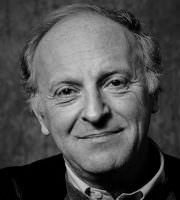About Joseph Brodsky
Joseph Brodsky (Leningrad, May 24, 1940 - New York, January 28, 1996), was a Russian-born American poet, essayist and playwright. Considered one of the greatest poets of the 20th century, he was named in 1991 the United States Poet Laureate. He wrote mostly in Russian, except for essays, which he wrote in English. He learned Polish and English through self-study and wrote his first poems in the late 1950s. The first poem published by Brodsky is Ballad of the Little Tow which appeared in 1962 in a children's newspaper, the Koster. The most famous poems of this first period are certainly The pilgrims, Monument to Pushkin and Christmas romance, characterized by an accentuated musicality, sometimes even tending to jazz improvisation. He also worked on translations of foreign poets. At the core of Brodsky's life and art lie the twin themes of exile and estrangement, and his works meditate on the true meaning of the term Exile. Brodsky's poetry attempts to embody in the fierce rhythms of his lyric language the acceleration of time and escape from the confines of space. For Brodsky, immortality was but ubiquity in time. Brodsky treated exile with ironic detachment, often adopting mythic personae in his handling of theme. In Brodsky's hands, exile became the condition of modern man seeking freedom from all forms of coercion and rootedness. Through the form of the elegy, the poet regarded exile as an expression of the soul's estrangement from the body. In his early poetry and in his works composed just prior to and following his expulsion from the Soviet Union, Brodsky extends the pastoral elegy to include a variety of mythological and historical figures. Sometimes his use of classical stories masks a contemporary personal predicament but also enables it to suggest something more universal. One early example of his masterful handling of classical myth is 'Aeneas and Dido' (1969).Of great importance at this early stage was Brodsky's friendship with Anna Akhmatova (1889-1966), one of the first major literary figures to recognize his talent. She dedicated a volume of poetry to him in 1963, when he was being harassed by the Soviet authorities: (To Joseph Brodsky, whose poems seem to me to be magical.) Akhmatova also introduced Brodsky to important English and American poetry, especially the works of Robert Frost. Akhmatova's description in her great poem Requiem of the split between actual human suffering and a writer's depiction of it became an inspiration to the poet's own explorations of the tensions between desire and language.
From 1960 he was able to publish both his own texts and translations in a number of magazines. In November 1963, an article appeared in a Leningrad newspaper that not only accused Brodsky of Socialism Parasitism but also claimed that he had planned to hijack an airplane in order to fly it abroad. As a result, in 1964 he was sentenced to five years of hard labor. In this internal exile, he mastered literary English. Using a Russian-English dictionary, he made literal translations of poems by Dylan Thomas, Auden, Eliot, Yeats, and Wallace Stevens. Brodsky was released after serving twenty-two months of his term, which he had to spend in the Arkhangelsk region primarily on a state farm in the isolated village of Norinskaia, near the Arctic Circle.
On June 5, 1972, the authorities expatriated Brodsky from the Soviet Union and, after taking all his manuscripts, put him on a plane to Vienna. Brodsky arrived in Vienna with a suitcase and $50 in his pocket. There the American poet W. H. Auden, who spent the summer months in Kirchstetten and whose poetry Brodsky already admired in Leningrad, took up his position. For the 32-year-old writer, this is how the adventure began in the USA. Brodsky received US citizenship in 1977. With a few exceptions, he continued to write his poems in Russian, but he also wrote highly acclaimed essays in English. In 1981 he was a MacArthur Fellow. He has been a member of the American Academy of Arts and Sciences since 1976 and of the American Academy of Arts and Letters since 1979. He was a co-founder of the Association of Literary Scholars, Critics and Writers. In 1987 Brodsky was awarded the Nobel Prize in Literature. Although his poems were now published in Russia, he did not want to return there. After the collapse of the Soviet Union, Brodsky appeared publicly with strongly nationalistic poems. After the Russian annexation of Crimea in 2014, his particular poem 'About the Independence of Ukraine', which he did not publish but publicly recited, was repeatedly picked up by state-affiliated Russian media and declared Poem of the Year.
Joseph Brodsky died of a heart attack at his home in Brooklyn, New York, on January 28, 1996—a date that is strangely significant. January 28 was also the date of the death of the Irish poet William Butler Yeats some fifty-seven years earlier. Both men were poets who had achieved international recognition. Both had received the Nobel Prize for literature. But the bridge between Brodsky and Yeats was built back in 1965, when Brodsky was only twenty-five years old. In that year, the Leningrad-born writer was living in state-imposed internal exile in Siberia.
His tomb is on the cemetery island of San Michele in the Venice Lagoon.
Browse all poems and texts published on Joseph Brodsky









